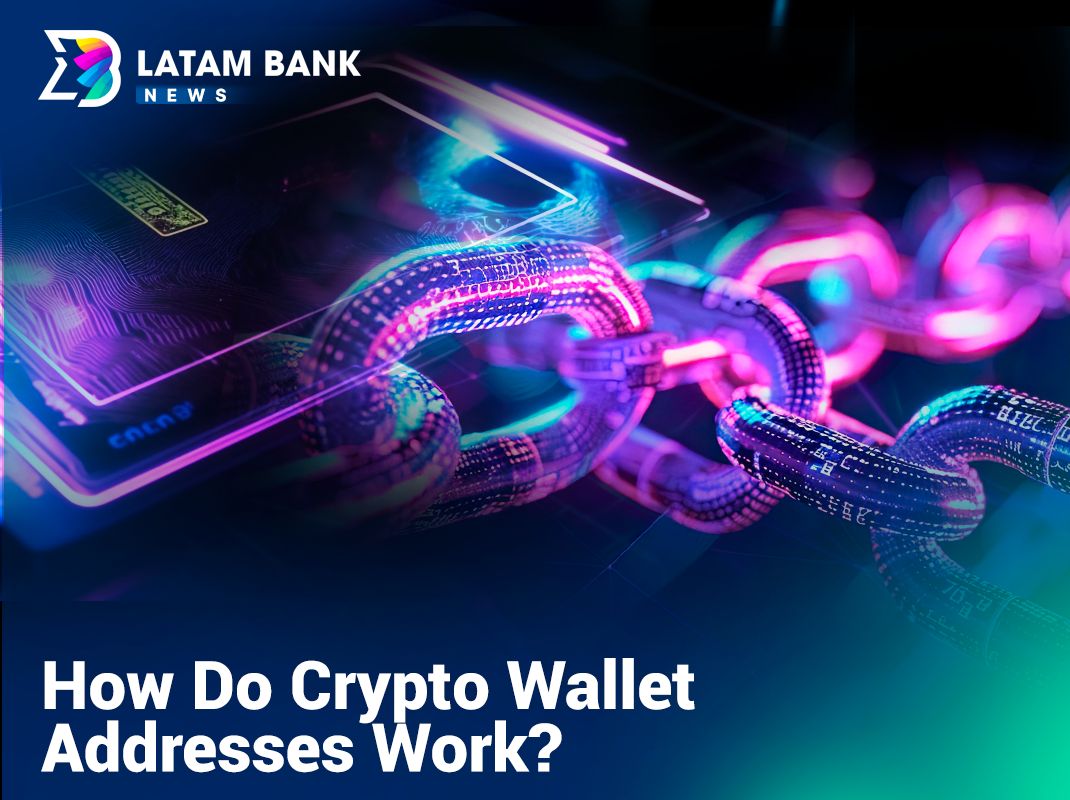With the growth of the cryptocurrency market, understanding how crypto wallet addresses work is an essential concept for anyone looking to enter this universe. These addresses are the key to sending and receiving cryptocurrencies securely and efficiently, including the world’s leading digital currencies. If you’re starting to delve into the world of crypto, it’s crucial to understand what these addresses are, how they work, their importance, and the precautions you need to take.
What Are Crypto Wallet Addresses?
A crypto wallet address is a unique identifier, usually represented by a string of numbers and letters, used to send and receive cryptocurrencies, such as stablecoins or memecoins. It works similarly to a bank account number but is linked to a public key in the crypto world. This public key is what other users use to send cryptocurrencies to you. Unlike options like bank accounts or payment systems like Pix, wallet addresses cannot be traced to a specific person, maintaining the anonymity that is one of the advantages of cryptocurrencies.
Interested in Crypto and Want to Join Latam Bank? Learn How
It’s important to note that while you have the wallet address to receive cryptocurrencies, access to these funds is granted by the private key. The private key functions like a password, and its security is critical, as anyone with access to it can move funds from your wallet. At the same time, because the market is decentralized and transactions are anonymous, losing the private key results in irreversible loss. Therefore, when creating a crypto wallet, it’s essential to securely store your private key.
The issue of “lost” wallets has been widely covered in the media. Particularly in the early days of cryptocurrencies, when Bitcoin’s value, for example, was much lower, many people did not handle their private keys cautiously, likely not imagining they could lose fortunes. According to the site BiTBO, the largest known lost wallet holds approximately 80,000 Bitcoins, worth over $7.5 billion at the current exchange rate (as of November 20, 2024). Blockchain analytics site Chainalysis estimates that about 20% of all Bitcoins are lost forever.
A person can own multiple crypto wallet addresses, which vary depending on the cryptocurrency. For instance, a Bitcoin address may start with “1” or “3,” while an Ethereum address begins with “0x.” Despite these differences, the functionality of wallet addresses is similar across all cryptocurrencies. Each digital currency has its own address format, but all serve the same purpose: ensuring transactions are accurately directed, and the correct recipient receives the funds.
How Do Wallet Addresses Work?
Crypto wallet addresses operate in a decentralized manner. They are not tied to a centralized financial institution, as is the case with banks, but rather to a public ledger, also known as the blockchain. When you make a cryptocurrency transaction, the information is recorded on the blockchain and validated by various network participants, known as validators.
Each transaction must be signed with the wallet owner’s private key. This ensures that only the private key holder can authorize the movement of funds. The blockchain then validates and confirms the transaction, making it irreversible. In other words, the process is independent of centralized decisions, relying on public information and validations by the network itself, reinforcing the financial freedom characteristic of this space.
How to Create and Protect a Wallet Address
Creating a wallet address is straightforward and depends on the type of wallet you choose to use. There are various options available, including online wallets, software wallets, hardware wallets (physical devices), and wallets provided by exchanges. Most of these automatically generate a new wallet address when set up.
While the process is simple and the addresses are public, securing your private key is paramount. If someone gains access to this information, they can access your funds and transfer cryptocurrencies to another wallet without your consent. To ensure security, use wallets with two-factor authentication (2FA) and store your private key in a secure location, such as a hardware device that is not connected to the internet, to prevent hackers from accessing it.





